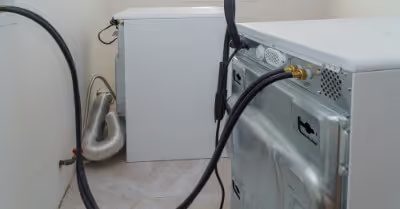Table of Contents
Factors that Influence Your Pest Control Frequency
Several factors influence your pest control frequency and, of course, the duration between follow-up treatments.
The Type of Pest
Many homeowners often assume that a one-off treatment will be sufficient in ending the pest problem. Unfortunately, this is far from the truth. It’s important to keep in mind that many pests lay eggs that won’t be affected by your pest control measures. Before you know it, the eggs will hatch (probably after the treatment) and your home will have the same old pest problem. This is essentially one of the main reasons why you should have a second treatment and maybe more.
While it’s often wise to carry out customary bi-monthly pest control, you can sometimes wait for as long as three months, six months or even a year. This will, however, depend on the type of pests. For instance, most types of spiders and ants are easy to detect, spread, and eradicate. This means that you may do pest control on such pests after three months but this will also depend on the scope of treatment.
On the contrary, other pests like bedbugs and the German cockroaches require specialized treatment. This is because they’re resistant to most chemicals and would only require weekly if not more regular pest control to keep them away. If anything, dealing with serious pests such as bedbugs requires indefinite pest control or at least, until that time when they’re entirely eradicated.
Prevention Means that You Should Do Regular Pest Control
As the saying goes, an ounce of prevention is worth more than a pound of cure. The same applies to pest control. In other words, the best way to deal with a pest infestation is to prevent it from occurring in the first place. Oddly enough, most pests are likely to creep into your beloved home when you least expect it. For this reason, it’s vital to schedule regular pest control to help create a year-round barrier even if the pests are not there. Do not wait until your home is pest infested to schedule pest control.
The best way to do this is by scheduling a quarterly (after every three months) pest control. Keep in mind that you should do this even when there are no signs or any form of pests in your home. This is essential if you want the creepy critters to stay away from your home for good. Prevention also means that you should identify would-be entry points and ensure that they are repaired immediately.
The Severity or Level of Infestation
Generally, if you start seeing minute signs of pest infestation in your home or office, chances are you’re already being infested and overrun by these annoying critters. They’re yet to make their full presence known but they already have abodes within your home or in the surrounding area. So whether you find cockroaches behind your refrigerator or carpenter ants under your bathroom vanity, the severity or level of infestation should play a key role in your pest control frequency. In other words, you may need far more regular pest control (twice a month) if your home is already pest-infested than if your home is pest-free and you’re doing pest control (after every three months) for prevention purposes only.
It’s essential to keep in mind that most pests will invade your home in large numbers. A typical example is the termites that will discreetly creep into your home and destroy your wooden structures. To deal with such infestations, it’s crucial to schedule bi-monthly pest control. This can help in dealing with any reemergence and in ensuring that the pests are dealt with sufficiently. Additionally, you should treat your home to a thorough monthly cleanup.
The Location of Your Home
The frequency of your pest control can also depend on the location of your home, the time of the year, and the pest population in the surrounding area. For example, if your home is located in an area where termites are prone, you’d want to schedule bi-monthly pest control to ensure that your home is termite-free at all times. Again, if your home is located in the cold northern climate, you may have to schedule monthly pest control to keep away rodents that are trying to keep warm during winter.
On the other hand, if your home is located in a warm and humid location, you might expect various forms of pests crawling through your home all year round. This may require you to carry even more regular pest control. The same applies if you live in the woods where pests are abundant.
Pests such as spiders, cockroaches, rats, raccoons, and mice are more likely to invade your home during winter. Differently, you might experience large numbers of ants in your home during summer, as well as swarms of mosquitoes and nests during spring and autumn. That being said, it’s important to schedule regular pest control in your home during these months.
Follow Pesticide Application Recommendations
The quality of your pest control measures is of great importance if you want to protect your home from pest infestations. This is why we often advise our readers not to go for low-quality pesticides that would only work for hours or perhaps days without conclusively eradicating or preventing the pests. But even with that, we have to admit that most pesticides or treatments will eventually wear off and the pests are likely to return to your home. To deal with this, you should go for quality pesticides or treatments that are strong enough to do away with the creepy creatures once and for all.
Also, you should follow the pesticide application recommendation. For example, it wouldn’t be a good idea to use a pesticide for over a year when it should have been used for six months. This is principally why you shouldn’t let the pesticides wear off lest you want the bugs to multiply and become even worse.
Another important factor is that pests react differently to various types of chemicals and pest control measures. In fact, some pests may become immune to some pesticides over time. This can be a major cause for concern in your quest to eradicate them. You should, therefore, adjust your pest control methods appropriately to ensure that they remain effective at all times. In doing this, you should take into consideration various factors such as the effects of weather on the pesticides. For instance, rains or water may wash down your pesticides and this may call for regular pest control.
Size of your Property and Area of Application
If you have a large property with numerous private or sheltered areas, monthly pest control should be the best solution. On the other hand, if you have a smaller space that you can closely monitor daily, you can consider having quarterly pest control.
While it’s crucial to have pest barriers all around your home, some areas (especially the indoors) are so sensitive and would call for special care. For example, if you have kids and pets around, it would only be fair to schedule quarterly, semi-annually or yearly pest control, unless the situation is dire. Although pests are unpredictable, they’re more likely to infest your home at the start of new weather patterns as they look for food and shelter. You should, therefore, be more on the lookout during these periods.
Conclusion
Regular pest control is, without a doubt, imperative in ensuring that your home or office is free of unwanted pests. And even if you have the cleanest home in the world, there’s still a possibility that pests could invade it. For this reason, the best way to keep your home pest-free is to maintain a thoroughly clean home and to schedule bi-monthly pest control in cases of normal infestations. But in serious cases, you should consider scheduling weekly pest control measures. All in all, it’s crucial to implement an integrated pest control routine that will keep your home pest-free all year round.
Recent Articles
















